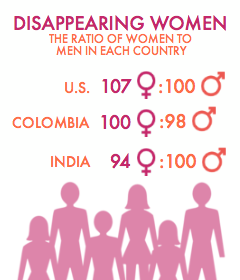
September 23, 2013 | Violence Against Women, War and Peace
The forgotten people: 5 questions for Sarah Costa on helping the world’s growing refugee population
"There are more refugees now than at any other time in recent history," laments Sarah Costa, executive director of the Women’s Refugee Commission, one of the few organizations that focuses specifically on the world's displaced people, most of whom are women and children. With refugees spawned by catastrophes in Syria ("the biggest humanitarian crisis since Rwanda 20 years ago," says Costa), Somalia, Central African Republic, the Democratic Republic of Congo and even, still, Colombia the WRC has no shortage of projects to tackle. Here, Costa tells why WRC is making a difference, and how she keeps going.
- What is the biggest need among refugees and displaced persons right now?
-
What’s the greatest thing you've accomplished with WRC since becoming executive director in 2010?
-
When you see so much misery, how do you keep going?
- Do you have a mantra that puts things in perspective?
-
What makes you optimistic?
"The crisis in Syria is huge—2 million refugees and more than 4 million people displaced within the country. Yet humanitarian funding is falling short. There have been numerous reports of sexual violence. Early marriage is reportedly a significant concern, as families see this as a protective factor for their daughters. And we’ve heard about girls being trafficked out of the camps."
"We've been doing a lot of work on disabilities. We found that refugees with disabilities are among the most underserved and neglected people in the world. We put their needs on the map and we work with the UN refugee agency to improve programs and train workers. We've also done a lot of work on prevention of violence against women and girls—including making sure they have access to a safe way to earn a living."
"Knowing that progress can be made. Of course we see a lot of misery, but there are also amazing stories of success, of individual resilience and courage."
"As actress Liv Ullmann put it when she founded the Women’s Refugee Commission, 'They are us.'"
"The fact that people can overcome the most awful experiences and go on to accomplish so much. One example: A young woman from Sierra Leone whose hands were cut off by child rebels when she was just 12 years old. Miraculously she survived and eventually was resettled in Canada. She went on to college and now, in her early 20s, is a counselor for abused women and children. And she has a baby daughter!"